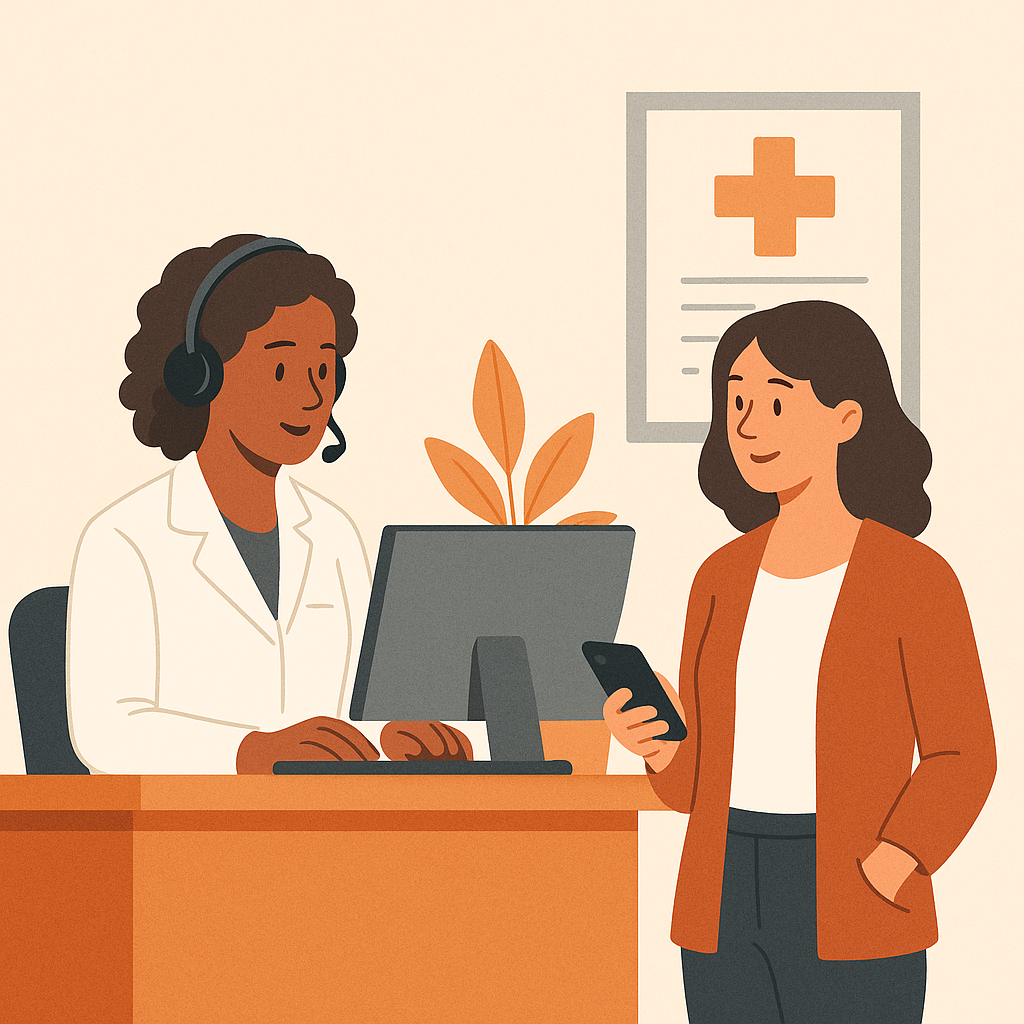For several years, medical practices have adopted online scheduling platforms such as Doctolib, Maiia, or EasyDoct.
The goal was simple: reduce phone calls and allow patients to book appointments independently.
But in reality, the phone keeps ringing.
Some practices even report as many calls as before - sometimes more.
Why? And more importantly, how can practices handle this without overwhelming their teams?
1. The phone is an emotional channel
A medical appointment is not a regular transaction.
It involves the body, health, worry, waiting, and sometimes pain.
In these situations, many patients feel the need to:
- Speak to someone
- Make sure they are choosing the right appointment
- Be reassured
Even if the information is available online, the phone call serves as a confirmation.
This is not reluctance or resistance to digital tools.
It is human behavior.
2. Not every situation fits a standard appointment flow
Online scheduling works very well for:
- routine follow-ups
- familiar care pathways
- autonomous patients
But many cases do not fit these patterns:
- New patients with undefined care paths
- Pain or semi-urgent symptoms
- Patients unsure which appointment type they need
- Specialties with strict booking criteria
- Requests for documents, certificates, or results
In these situations, the patient cannot simply click.
So they call.
3. The phone is perceived as faster
Even if the online system is clear and simple, many patients think:
"If I call, this will be solved in 30 seconds."
Even if it means waiting on hold for several minutes.
This perception of efficiency is psychological, not rational.
4. When the secretariat is overloaded, online scheduling is not enough
Online scheduling does not replace the secretariat.
It reduces part of the workload, but does not handle:
- complex cancellations
- priority medical cases
- emotional or sensitive situations
When call volume spikes (morning hours, lunch break, end of day), human teams get overwhelmed.
This is where the system breaks.
5. The solution is not to remove the phone
Turning off the phone frustrates patients.
Hiring more staff is expensive — and does not solve peak-time overload.
The real solution is hybrid:
- Automate simple, repetitive calls
(to free up time) - Keep human secretaries available for important situations
(to preserve quality of care)
This is exactly where Donna comes in.
6. Donna, the medical voice assistant designed for high call volume
Donna answers instantly, 24/7.
She can:
- Book, reschedule, confirm, or cancel appointments
- Trigger automatic patient reminders
- Send SMS instructions or confirmations
- Filter irrelevant or commercial calls
- Detect urgent situations and transfer to the human secretariat
Donna does not replace the team.
She protects it.
She handles 60% to 80% of calls.
Secretaries regain time, calm, and control.
Learn more about Donna : https://callrounded.com/cas-usage/secretariat-medical
Conclusion: Patients will continue to call — and that’s normal
The phone will always have a place in patient care.
What changes is how we manage it.
The practices that succeed are those that adopt a model that is:
- hybrid (AI + human)
- continuously available (no missed calls)
- lighter for the team (reduced mental load)
- reassuring for patients (better experience)
Donna does not replace the secretariat.
She allows it to return to its essential role: the human connection.

